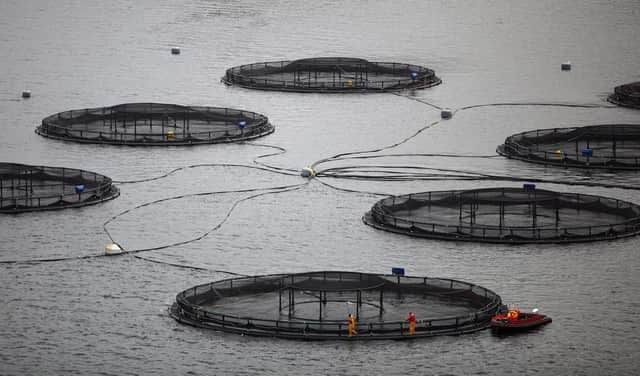New early warning system could help Scottish seafood producers fight back against climate change
Researchers at the Scottish Association for Marine Science (SAMS), Marine Scotland Science and Scotland's Rural College have shared their own water sampling experience with the country's trout and salmon producers in a bid to standardise and share water quality data.
The cross-sector project was funded by the Scottish Government and commissioned by the Scottish Farmed Fish Health Framework in a bid to respond to new and developing challenges and work towards earlier detection of marine organisms that can affect fish health.
Advertisement
Hide AdAdvertisement
Hide AdOliver Robinson, chief executive of the British Trout Association, said: "Globally, changes in weather patterns are affecting all manner of animal and plant species. For aquaculture, this can mean increases in the presence of naturally occurring, but potentially harmful plankton and jellyfish.


"Standardising protocols for water sampling and sharing this data cross-sector can only be a good thing, helping highlight emerging threats and enable producers to take pre-emptive action to protect their livestock."
A similar approach has already proven beneficial to Scotland's shellfish producers. Professor Keith Davidson, associate director for science and education at SAMS, said: "SAMS has operated an early warning system to mitigate the impacts of harmful algal blooms on shellfish.
"We use phytoplankton cell counts undertaken at farms to initiate mathematical models that are able to simulate the development and transport of these potentially harmful events and help farmers plan husbandry actions to best protect the health of farmed fish."
Recent data from Salmon Scotland for September showed survival fell to 95.3 per cent – 2.4 per cent down on the past four-year average. This equates to a loss of 2.8 million fish across the sector. Tavish Scott, chief executive of Salmon Scotland, said: "Raising animals outdoors inevitably comes with risks as the climate continues to change and evolve, but that makes environment-induced events no less devastating to the farmers caring for those animals day in, day out.
"It's why we're so committed to increasing our understanding of new and emerging threats in order to better safeguard the health and welfare of our salmon."
Comments
Want to join the conversation? Please or to comment on this article.